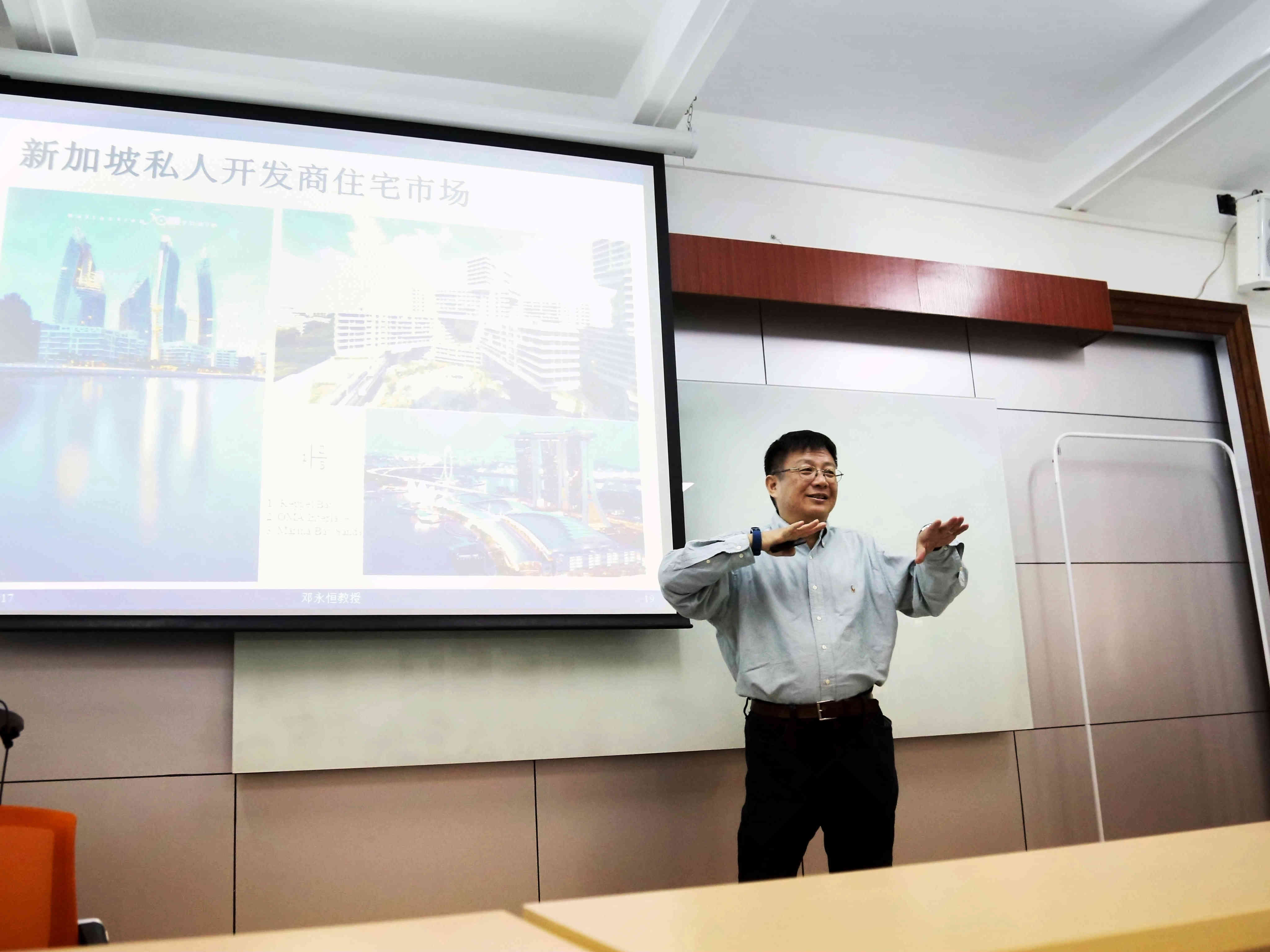On January 22, 2018, Yongheng Deng, Professor at the University of Wisconsin – Madison, gave a policy lecture on “People’s Housing Market: An Analysis on Livability and Sustainability of China’s Major Urban Housing Markets”.

In the lecture, professor discussed some of the major factors that have a major impact on housing markets (e.g. population, finance, etc.), analyzed government’s role in it and also shared some of the insights on the house price risks generated by Chinese households. Yongheng Deng’s lecture not only attracted our faculty and teachers but also people from the local real estate industry.
As Yongheng Deng noted, China's housing bubble is not only driven by the policy but also by the lack of investment channels. Also, it is subject to cyclical changes in demographic structure. Professor highlighted that these factors overlap with such things as marriage, education and welfare, therefore highly affecting Chinese housing market.
According to his study of housing market in China over the 10 years period, there has been a dramatic increase (736%) in land price since 2004. Yongheng Deng compared the growth of land prices and housing prices across 12 cities in China, analyzed short-term and long-term supply-demand balance and also residential vacancy rate. At the same time, he summarized other factors affecting China's housing prices including tax sharing system, government intervention, and etc.
Professor believes that in order to slow down the growth of housing prices, China urgently needs a long-term mechanism that could promote a stable development of real estatemarket and the corresponding financial market. These could be the investment into real estate capital market, structural financing and securitization, and so on. Yongheng Deng also stressed out the sound regulatory framework as well as the transparency of the housing market as the absolute prerequisites for its successful development.
